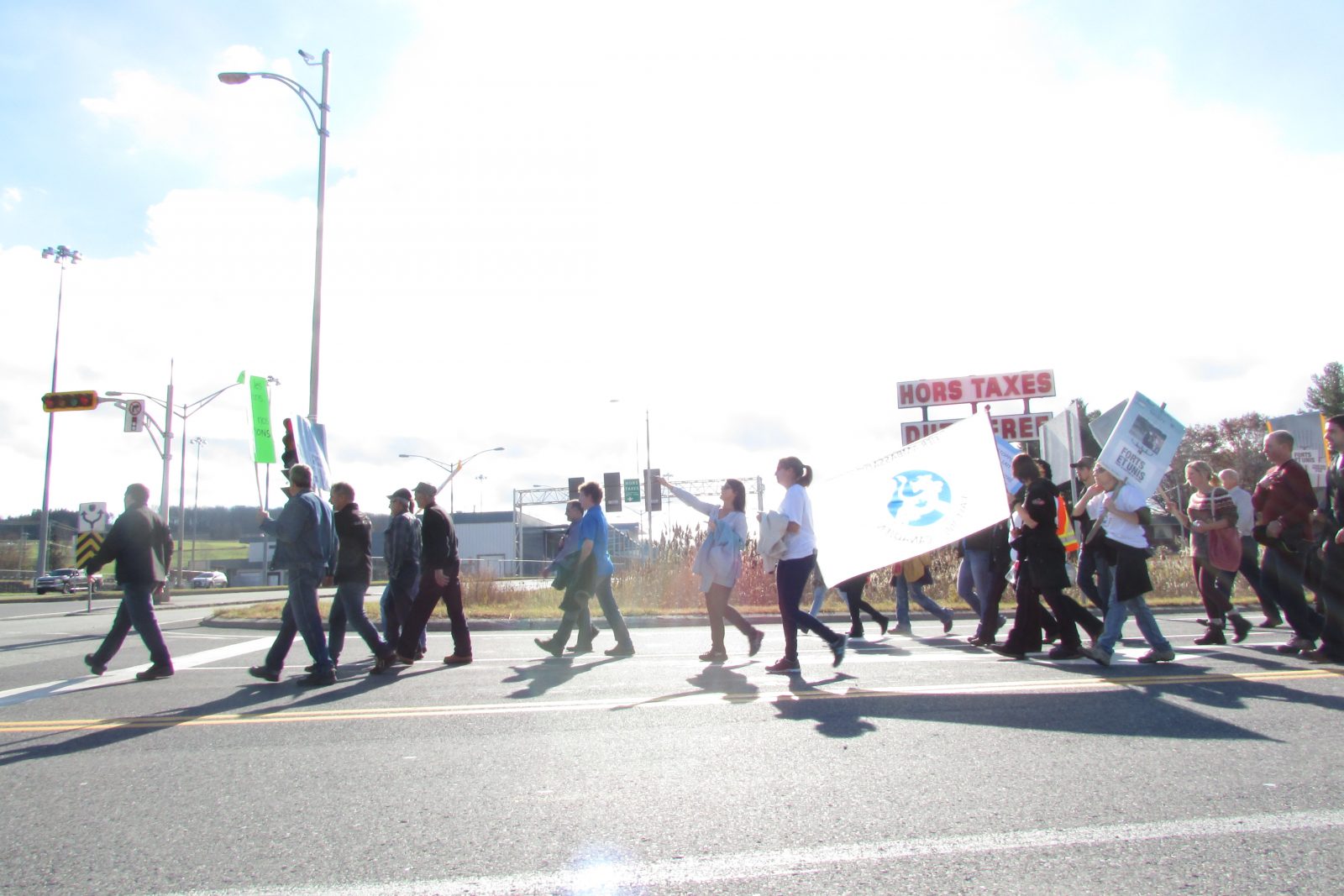Dairy producers from the Townships assembled on Thursday at 11 a.m. at the Pat Burns Arena in Stanstead and paraded down Dufferin Street, some marching, some driving tractors, to protest against ineffective laws allowing non-Canadian dairy across the border.
The demonstration convened in front of the American border on Highway 55.
The goal of the demonstration, according to organizer Trisha Walker, a dairy producer from Saint-Georges-de-Windsor, was to remind the new Liberal government of promises made during their campaign.
Walker said she has two sons, 19 and 20 years old, and part of her motivation to protest is to protect their future.
“We’re the typical Townships family farm,” Walker said, adding that should her sons take over the business, they would be fifth generation dairy farmers.
According to Walker, the combination of dairy concessions proposed in the Trans-Pacific Partnership (TPP), the allowance of 17,000 additional tons of Eurpoean cheese entering Canada through the Comprehensive Economic and Trade Agreement (CETA) with the European Union, together with milk protein coming across the border from the United States because of creative labeling and the circumventing of regulations puts Canada’s supply management system at risk.
Walker said a conservative estimate of losses incurred by local producers because of dairy getting across the border is eight per cent.
“We love our trade and we love our animals,” Walker said in a speech in front of the American border.
“We are specialists in risk management.”
She went on to say that Canadian dairy producers adapted to changes in the environment; they then adapted to traceability requirements and strict regulations monitoring the quality of their products.
Walker called on the government to tighten the border to prevent the entry of dairy products through creative labeling and legal loopholes, and also to hold any dairy allowed into the country to the same standards as Canadian producers.
François Bourassa, President of the Townships branch of the UPA, the local farmers’ union, was one of the forty protestors at the border.
“This was an initiative of the producers,” Bourassa said. “When it comes from them, it’s always better,” he said, adding that the UPA supports the position of dairy producers.
Bourassa said the Liberals promised to address the loose border situation within 100 days of being elected.
“We’re here to remind them of their promise,” he said, pointing out a promise during a campaign is easy to make, but dairy producers now intend to hold them to their word.
Bourassa said the issue should be of concern to consumers as well, referring to the quality of Canadian products. According to Bourassa, American dairy may contain substances and levels of bacteria that are not allowed in Canada.
“Getting something into the United States is complicated,” Bourassa said, “but the Canadian borders are porous,” he said, adding that dairy transformation industries are very imaginative in the way they label and identify levels of milk protein based on its form and filtering processes used.
The protest ran from 11 a.m. until 1 p.m.
A similar protest was held in Victoriaville in October, according to Walker. In an effort to maintain visibility and keep the challenges faced by dairy producers in the forefront, she said demonstrations are likely to continue in defense of supply management.
“We were a bargaining chip. We were sold,” Walker said, referring to the TPP.
Townships dairy producers protest at the Can/US border






